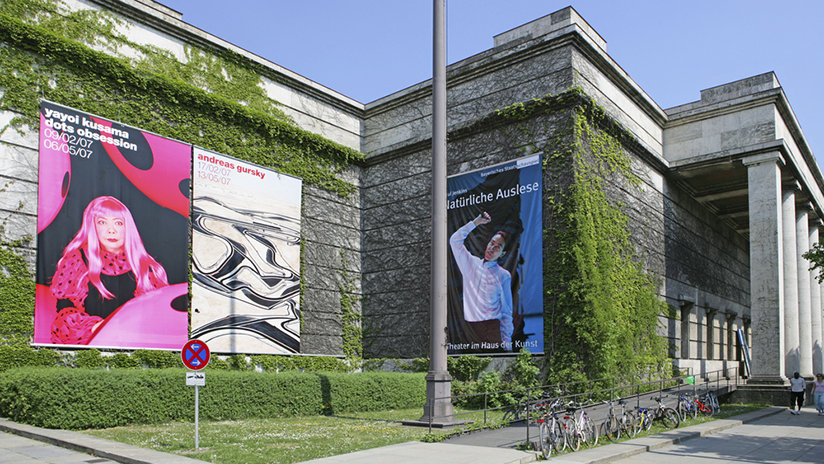
-
HOME
-
WHAT IS STANDOur Mission Our Values Our Help Contact
-
WHAT WE FIGHT FORReligious Freedom Religious Literacy Equality & Human Rights Inclusion & Respect Free Speech Responsible Journalism Corporate Accountability
-
RESOURCESExpert Studies Landmark Decisions White Papers FAQs David Miscavige Religious Freedom Resource Center Freedom of Religion & Human Rights Topic Index Priest-Penitent Privilege Islamophobia
-
HATE MONITORBiased Media Propagandists Hatemongers False Experts Hate Monitor Blog
-
NEWSROOMNews Media Watch Videos Blog
-
TAKE ACTIONCombat Hate & Discrimination Champion Freedom of Religion Demand Accountability
German Court: Final Vindication Over Discrimination
Munich, Germany—On April 3, 2019, the House of Art museum agreed to compensate its former Personnel Director for unlawfully terminating his employment after press articles referred to rumors concerning his religion. The parties reached the agreement after the Munich Labor Court rejected the allegations of the defense and advised the parties enter settlement negotiations. According to the Court’s firm view, no valid grounds existed for dismissal and the termination was therefore not valid.

The museum agreed to a severance payment of €110,000, plus a pension package that will ultimately total several hundred thousand euros.
The settlement followed the July 10, 2018, decision by the Bavarian State Labor Court of Appeal in which the Court held that the Personnel Director of the House of Art museum shall enjoy full employee protection rights. This makes it illegal to dismiss him from his position based solely on suspicion about his personal religious beliefs and religious association with Scientology.
The case began in March 2017 when the 22-year veteran employee of the museum sued for wrongful dismissal. The museum had terminated him following allegations about his personal religious beliefs and religious association.
The OPC, established to protect citizens, has been found to conduct operations that protect neither citizens nor their constitutional rights.
Local press reports revealed behind-the-scenes pressures had been exerted on the museum’s executive branch to coerce them to fire the long-serving employee, who was respected by his superiors and popular among his colleagues. These reports found that local politicians and the Bavarian Office for the Protection of the Constitution (OPC) were responsible for the strong-arm tactics.
The OPC, established to protect citizens, has been found to conduct operations that protect neither citizens nor their constitutional rights.
Allegations have been made that the Bavarian OPC has, for 20 years, conducted illegal, costly, pointless and unconstitutional spying on members of the Church of Scientology and that its surveillance is a sham to discriminate against peaceful church-goers.
At the first instance trial, the Labor Court judge found in favor of the plaintiff, declaring that he was not an independent contractor but a museum employee. Consequently this opened the scope for full protection against unlawful dismissal solely because of his religion—a case of blatant discrimination and a violation of the German Constitution. The House of Art museum appealed the case, but the 22-page decision by the State Labor Court of Appeal rejected the appeal in full.
The Court of Appeal determined, again, that a clear labor relationship existed between the plaintiff and the museum. All facts showed that he was fully integrated in “the organizational structure,” had his own office in the House of Art, used its equipment, and even developed a computer program on its computers to facilitate his work. He issued directives to staff and received directives himself from his superior.
So clear were the facts and the law that the Court of Appeal determined that the museum had no further rights of appeal. The Court’s July 10 decision was final.
On remand, before advising the parties to settle the case, the Munich Labor Court reviewed the evidence of both sides. This included a copy of a Supervisory Board Minute of July 2016 in which the House of Art management certified to the members of the board, including the Bavarian Minister of Education and Cultural Affairs and his predecessor, that the plaintiff had an unblemished record in his more than 20 years at the House of Art.
“We are heartened that justice has once again been served, that this loyal and honest person will be recompensed, and that discrimination based on someone's affiliation to the Scientology religion is not tolerated within the German judicial system. This is another victory for religious freedom for all Germans,” said STAND’s International Director, Edward Parkin.






